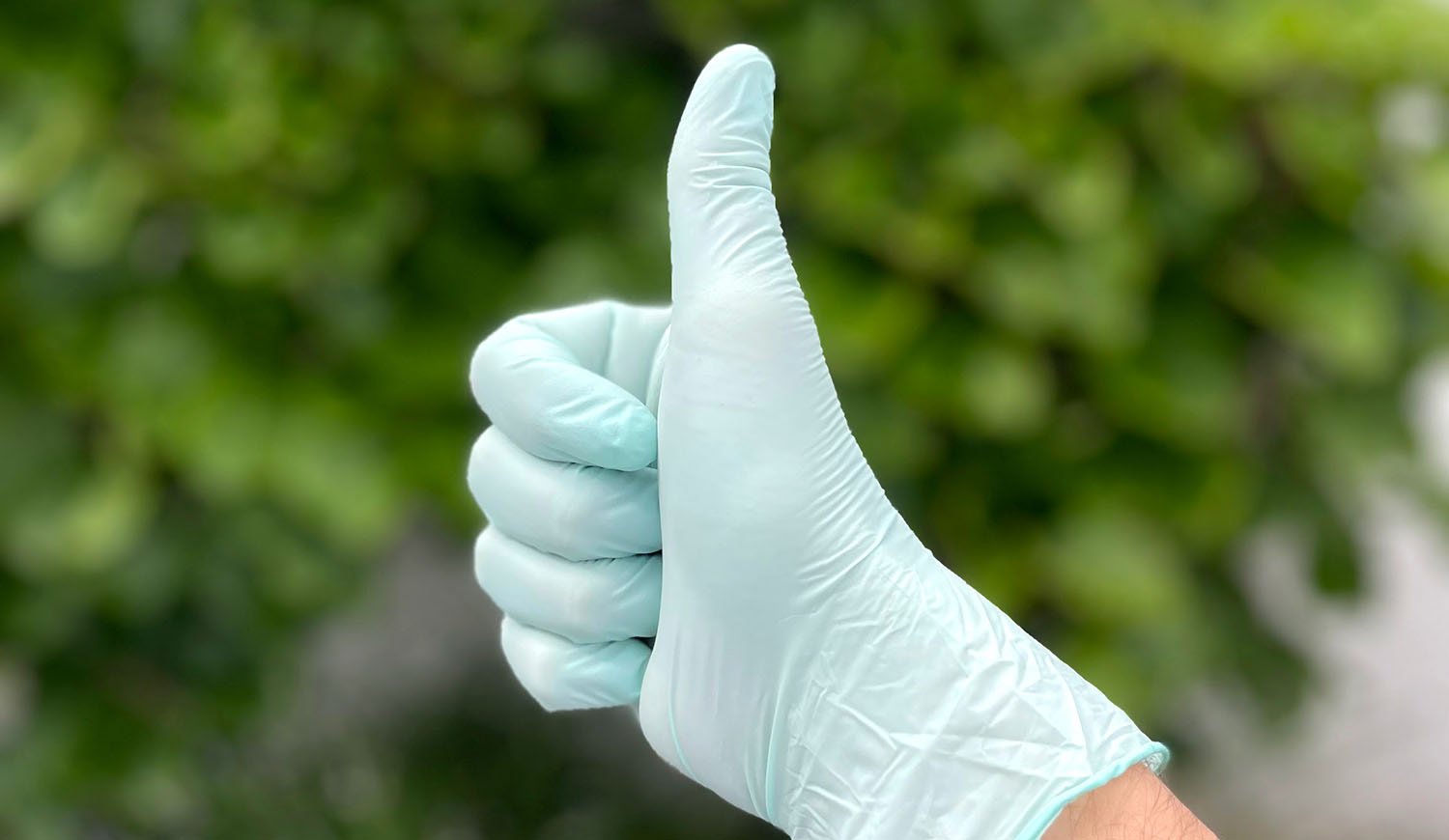Medical company to win race for biodegradable nitrile gloves
BY ANDREAS LØNSTRUP/MEDWATCH/Published: 29.06.22 at 06:52
Danish medical company Eastwest Medico is aiming to win in a race against time in the market for biodegradable nitrile gloves for the healthcare sector, among others, and sees a market potential of DKK 100-200 million in Scandinavia alone.
The Danish medical company Eastwest Medico, which last year had a turnover of around DKK 80 million, is now aiming to gain market share by selling the world’s first biodegradable nitrile gloves that also meet all the required quality and certification parameters, which the company sees as a climate-friendly alternative to traditional nitrile gloves.
“There have been a few initiatives in the past, but where it turned out that the quality hasn’t quite lived up to what you need to live up to if you’re going to work in healthcare. But it turns out that the gloves we’ve had made can do that, and they’ve been provided with all the required certifications and testing that a medical glove must have,” says Michael Kastrupsen, CEO of Eastwest Medico.
He points out that the Covid-19 pandemic has caused a sharp increase in the use of disposable gloves in the personal, private and public sectors, and that the increased consumption has also led to an increased, general awareness of the life cycle of products.
According to Eastwest Medico, approximately 1.4 mila are used each year. tonnes of nitrile gloves worldwide in the healthcare sector, the food industry and by the general consumer. Eastwest Medicos are made from a new NBR (Nitrile Butadiene Rubber) formula that allows the gloves to biodegrade under microbial attack in aerobic and anaerobic landfill environments. Under optimal conditions, the company’s biodegradable nitrile gloves completely degrade in less than three and a half years, whereas ordinary nitrile gloves would take more than 100 years, according to Michael Kastrupsen.
“We believe this has to have commercial traction – in principle not only in Scandinavia, but also throughout Europe and maybe even in the US. We have a partnership with an American distributor who is now quietly introducing the product to the US market,” says Michael Kastrupsen. In Denmark, Eastwest Medico has an agreement with A.P. Møller – Mærsk, which wants to use the biodegradable gloves for food handling, among other things. The company is also involved in a tender involving all Norwegian hospitals. Here Eastwest Medico offers both ordinary gloves and biodegradable gloves.
“Should it turn out in our favour – partly because Norway is one of the pioneering countries in sustainability and ethical trade – it is an order worth 20-30 million DKK. So potentially, in Scandinavia alone, you could get over DKK 100 million in turnover if you get the market right, without sitting on the whole market,” says Michael Kastrupsen.
According to Michael Kastrupsen, the glove was developed in cooperation with the world’s largest manufacturer of disposable gloves, which means that Eastwest Medico is able to meet even very large global demands. For competitive reasons, however, he will not give more details about the collaboration. “The fact is that if you look at the consumption of gloves broken down by different areas, medical gloves account for about 82% of the global market, so it is by far the largest, but the procurement procedures in the medical area are more complex than in the private sector because it is often tied up in tenders. There is huge potential, but it just takes longer to get in, because purchasing is done in a completely different structure,” says Michael Kastrupsen.
He expects larger companies to also look towards biodegradable gloves and describes the competitive situation as a “race against time.” “It’s quite traditional, what companies like us have a chance at, because we are more agile. We have a much shorter decision-making process where we can decide on something and do it the next day. So it’s about getting out there and running and winning what we can before any of the big players see this,” says Michael Kastrupsen.

